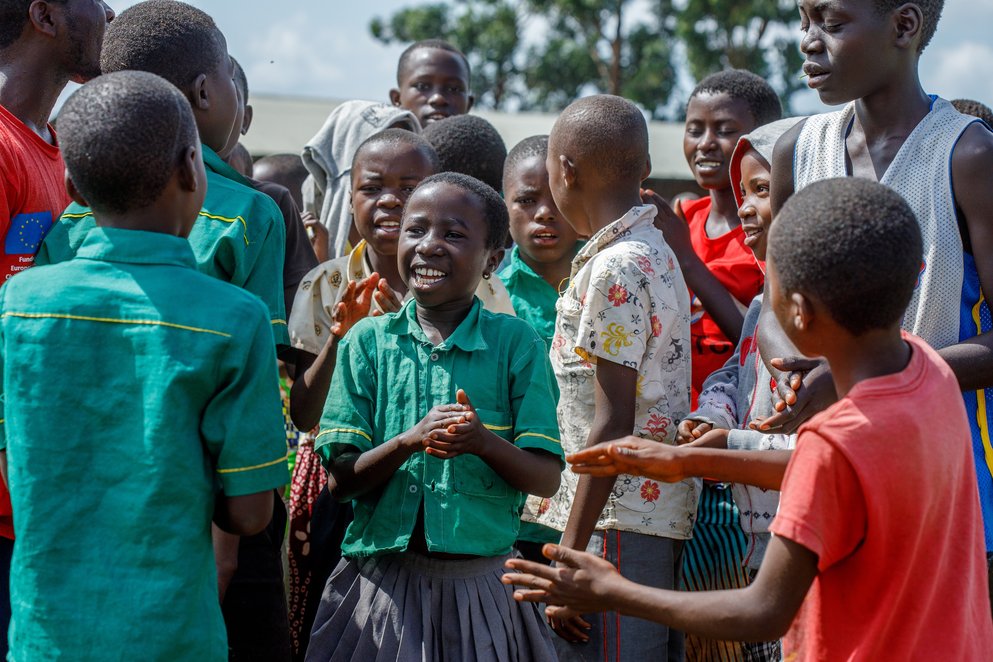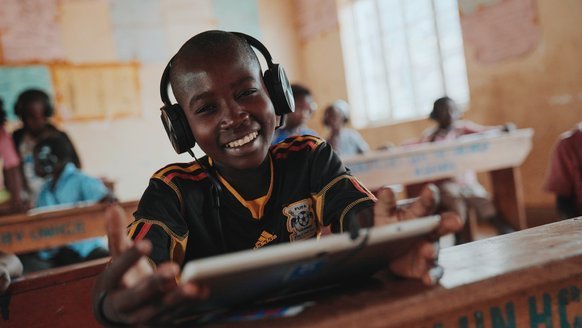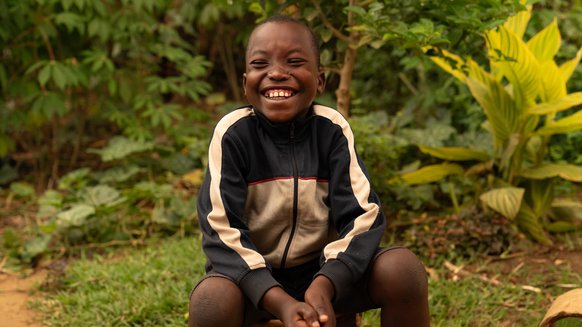World Refugee Day 2025: Protecting children in East Africa
June 16, 2025

An estimated 19.1 million children around the world are refugees. For many, life away from home is all they have ever known. Without support, their trauma can last a lifetime. They often face fear, lack access to education and healthcare, and are especially vulnerable to abuse, violence, exploitation, neglect, family separation, child labour, and early marriage.
Finding new hope in Uganda
Uganda has become one of the world’s largest refugee hosting nations. Today, nearly 1.9 million refugees have found shelter there, most of them women and children who have fled unimaginable violence and loss.
Since January 2025, over 65,000 people from the Democratic Republic of the Congo (DRC) have arrived in Uganda, escaping an escalation of conflict in the east of the country. Despite a fragile ceasefire, every single day around 400 people, nearly half of them children, make the harrowing journey to safety.
At the crowded reception centres, where resources are already stretched thin, children face a new set of risks: trauma, violence, neglect, and a deep sense of uncertainty.
That’s why War Child has launched an emergency response to support the influx of new arrivals from DRC, as well as refugees from Sudan and South Sudan, and to stand with them as they begin to rebuild their lives.
With the support of local partners, we are providing new arrivals with emergency kits that contain clothing, hygiene items, and essentials for women and girls. These basics, though small, restore a sense of dignity and remind families that they’re not alone.
To help children and caregivers process their experiences and reduce their emotional distress, we are providing psychosocial support through the implementation of evidence-based methodologies TeamUp, EASE, and BeThere.
For those who need more intensive support, especially children who are separated or high risk, case management and referrals are available to ensure they get the care and protection they need.
Supporting families in South Sudan
Uganda is not the only country in the region that has seen an influx in refugees. Just across the border, South Sudan has endured wave after wave of violence since gaining independence in 2011. Nearly 2 million people are now displaced within the country. And yet, South Sudan has welcomed around 500,000 refugees from neighbouring countries, many of them fleeing the devastating conflict in Sudan.
Together with local partners, we are supporting families forced to flee the conflict in Sudan to South Sudan in refugee camps and in transit centres, where people arrive after long, dangerous journeys.
503 South Sudanese returnees and Sudanese refugee children affected by the war in Sudan have found safety, learning, and joy at three child friendly spaces in Renk and Maban in South Sudan in 2025. These spaces play a vital role in supporting children’s mental health and in reuniting separated children with their families.
War Child has also launched three ‘Child Rights clubs’ in the areas, each made up of 25 young people who are learning about their rights, gaining leadership skills, and growing into confident advocates for their communities. These clubs help children become agents of change, even in the most difficult circumstances.
To raise awareness about the dangers children face while fleeing conflict, we have hosted 15 community events in Renk and Maban with caregivers, elders, and community leaders. These efforts led to the formation of a community committee that promotes peace and ensures inclusive, respectful support for families from diverse backgrounds.
Every day is World Refugee Day for children displaced by war
Refugee children need support now more than ever. Today, over 7.2 million refugee children are missing out on education, and a staggering 1 in 5 experiences symptoms of post-traumatic stress disorder (PTSD). Behind each number is a child who deserves safety, healing and the chance to thrive.
War Child will never stop working to support the rights and needs of children affected by conflict.

